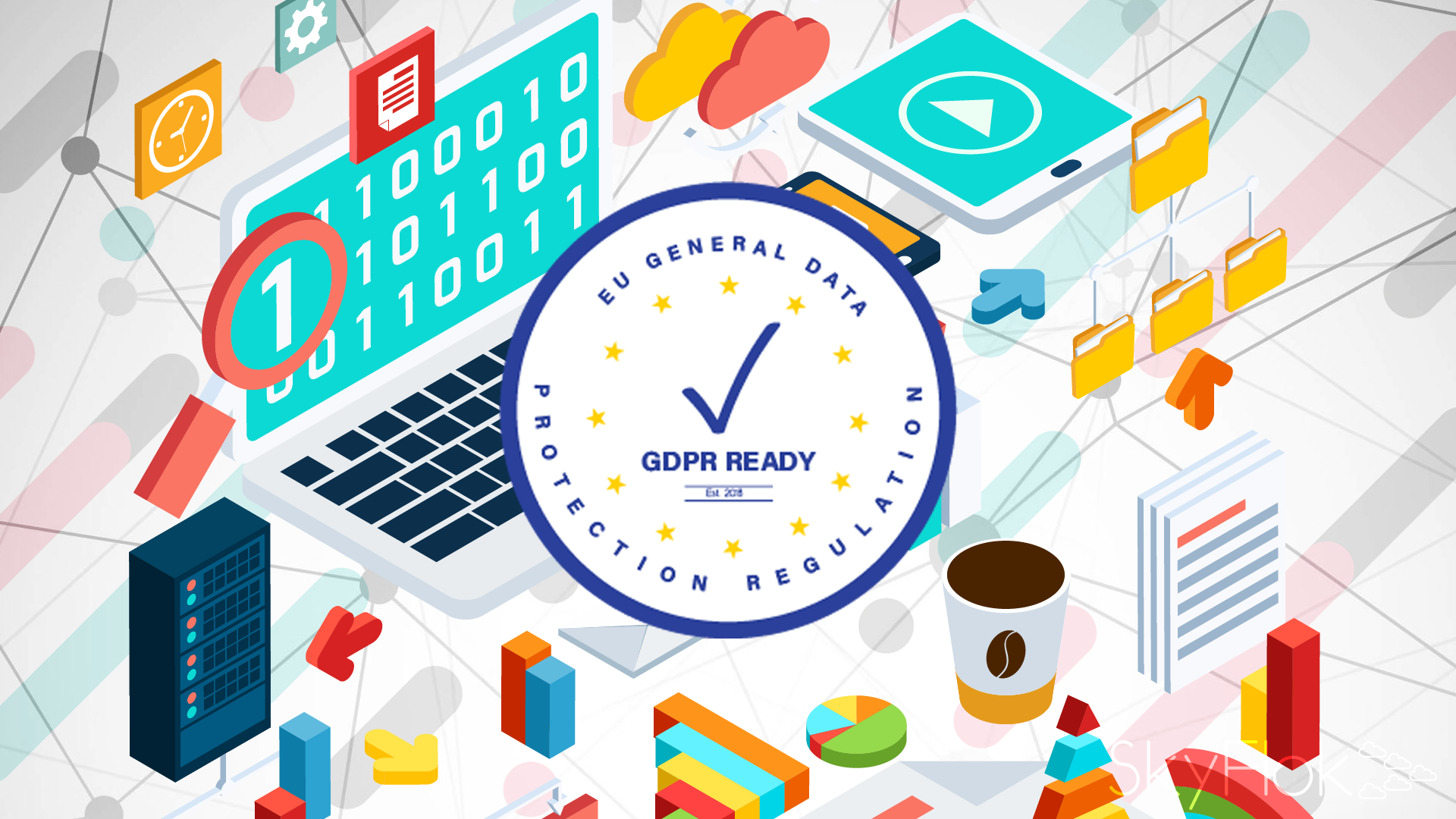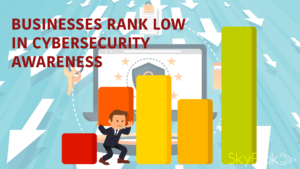Next month, GDPR will come into force with new, strict regulations regarding data privacy. Companies that are found non-compliant not only risk the success of their business, they are risking their relationships with key stakeholders, including their customers, employees, partners, regulators and the public.
At SkyFlok we help organizations take a big step towards GDPR compliance. SkyFlok has the unique ability to let customers determine where their data is stored. We give them choice and control over their data. SkyFlok also has a backup plan in case of file corruption. We preserve all previous file versions, which means that you can always go back to a previous version of your files seamlessly.
Get ready for GDPR and protect the privacy of your and your clients data with SkyFlok.
In 2018, we’re constantly being told about the value of data, whether at the consumer, personal or business level. We just completed World Backup Day. And next month, General Data Protection Regulation (GDPR) will go into effect with new, stringent regulations around data privacy. Commvault is redefining what backup and recovery means to the progressive enterprise. And the company recently celebrated the unsung heroes working in the trenches of their IT organizations to ward off never ending threats of ransomware, malware and other disasters. To find out more about World Backup Day, backup strategies, and the impending GDPR deadline, I reached out to Don Foster, Senior Director of Worldwide Solutions Marketing at Commvault.
VMblog: On this World Backup Day, what should IT leaders be thinking about?
Don Foster: Companies are managing more data than ever, on a greater diversity of clouds, endpoints and virtualized infrastructures. The market is demanding smarter automated solutions to protect all data types quickly. With the demand for smarter backup follows the requirement for smarter, faster, and more automated recovery. Enterprises can no longer depend on reactive, disparate and incomplete backup strategies for their data. When a disaster strikes, this type of strategy will lead to slow or incomplete recovery, and a significant impact on business performance. The daily threat of ransomware and other threats are reminding us to act on improving recovery readiness every day. Given this complexity of data environments, the most urgent question enterprises should ask themselves this World Backup Day is not necessarily “are they backed up” but, “are they backed up in a documented, tested way so that they can recover quickly and with confidence?”
VMblog: As it relates to the impending GDPR deadline, what is important for organizations to know about backup?
Foster: With the GDPR deadline arriving next month, organizations must have data management strategies in place to ensure they are in compliance with these new data privacy regulations. Having a comprehensive backup and recovery strategy in place to safeguard personal data is a crucial part of GDPR, and that data must also be discoverable so that obligations such as the “Right to be forgotten” can be met. Companies that are found non-compliant and unable to meet data protection requirements not only risk the success of their business, they are jeopardizing their relationships with key stakeholders, including their customers, employees, partners, regulators and the public.
VMblog: What are some considerations for IT leaders implementing their cloud environment into their backup and recovery strategy?
Foster: It’s still your data, so you’re ultimately still responsible for it. On that note, one consideration that IT leaders must consider regarding their cloud backup and recovery strategy is the coverage needed to support service level agreements (SLAs) for corporate data delivered via SaaS applications and cloud providers. Many enterprises overlook the fact that protecting their data in the cloud, and ensuring its regulatory compliance, is actually their responsibility not that of the SaaS or cloud services provider. Given this, businesses must ensure that backup and recovery processes are consistent across all environments, including the cloud. While this might seem self-evident, a recent study by CITO research found that 94% of IT leaders are concerned about their ability to recover data quickly from the cloud if a disaster were to occur.
VMblog: What are some telltale signs that it is time to reevaluate your backup strategy?
Foster: One sign that it is time to reevaluate your backup strategy is that your backup processes are overly complex and fragmented. Despite the increasingly intricate data storage landscape, there are powerful data protection tools that simplify and automate the backup and recovery of data no matter where it resides. A complete strategy must have self-service tools that allow users’ to recover their own data quickly, all without bogging down busy IT staff in the process.
Another telltale sign is when recovery processes are long, inflexible and unable to adapt to current threats. With ransomware growing at a yearly rate of 350%, businesses must adopt the mentality that falling victim is no longer an ‘if’, it is a matter of ‘when’. Given this, IT should make sure they have secure backups that enable quick data recovery in the face of a ransomware attack or another emergency. Speed of recovery could make the difference between keeping your operations running, or paying ransom and praying that you are among the 50% of victims who have their data safely returned, rather than finding the ransom has been wasted, and data is still locked up.
VMblog: How should busy IT pros recognize and honor World Backup Day this year?
Foster: On this year’s World Backup Day, IT pros should take time to reflect on their enterprise’s complete backup and recovery strategy. Identify how they can make it more consistent, automated, secure, and simple – so that this updated strategy advances, rather than inhibits, their enterprise’s efforts to realize its business goals.







